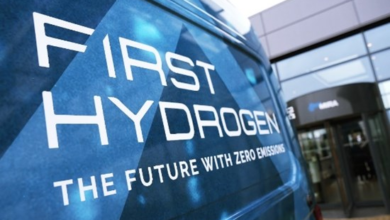Funding secured for green hydrogen storage materials research
The team is thrilled to be able to move forward with our investigations into producing green hydrogen storage materials from New Zealand resources.

The development of safe, low-cost, green hydrogen storage materials from New Zealand resources is now a step closer, thanks to an international research grant.
Professor Sally Brooker, of the University of Otago’s Department of Chemistry is co-leading a German-NZ Green Hydrogen alliance with Dr Paul Jerabek, of the Institute of Hydrogen Technology, Helmholtz Zentrum Hereon.
The alliance, supported for five years with both German and New Zealand funding, was established to encourage networking and outreach and establish a research centre at Otago. It aims to foster green hydrogen research and industry relationships between the two countries, providing significant investment opportunities and attracting high-value industrial and research partners.
It has just been awarded a three-year research grant from the German Federal Ministry of Education and Research (BMBF) and New Zealand’s Ministry of Business, Innovation and Employment (MBIE) to investigate safe, low-cost hydrogen storage materials from New Zealand resources.
Co‑led by Professor Brooker and Dr Jerabek, in partnership with Aimee Kaio (Awarua Runaka and Te Rūnanga o Ngāi Tahu) and Dr Linda Wright (NZ H2 Council), the MBIE grant supports a New Zealand-wide research team: Associate Professors Nigel Lucas and Michael Jack and Dr Anna Garden (Otago), Dr Chris Bumby (Robinson Research Institute, Victoria), Associate Professor Jonathan Lever (Unitec), Professor Peng Cao (Auckland), Associate Professor Alex Yip (Canterbury), and, most importantly, five PhD and three masters’ students.
Green hydrogen is a key commodity chemical and a carbon-zero fuel, so it has the potential to become a key vector to carry and store renewable energy, but it is challenging to store compactly.
Currently, it is stored either by compressing it to high pressure or by liquefication through cryogenic cooling. Both reduce the volume substantially, but neither is appropriate for large-scale, long-term storage due to system leakage losses, safety concerns, and cost.
Metal hydrides are an extremely safe, versatile and technically very attractive option for hydrogen storage. However, new cost-effective sources of these metals are required to make them commercially competitive with alternative storage methods.
Professor Brooker says the highly collaborative research project is looking to combine scientific, engineering, and economic expertise to test if New Zealand resources, such as ilmenite, can be used to generate these metal alloy materials cost-effectively and sustainably – with the benefits retained in the region.
